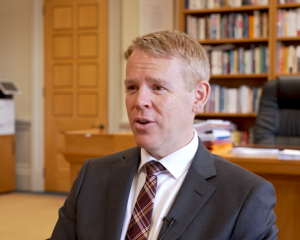New Zealand's looming travel tax could cost the country hundreds of jobs and is a breach of international aviation principles, a global airline organisation warns.
The International Air Transport Association (IATA) says the fees which could add up to close to $22 for a round trip international air fare would have a "profound negative impact" on air travel demand and tourism.
At its maximum proposed level, the tax could cost the aviation industry $33 million and 207 jobs and tourism would be hit by the loss of $196 million and 1702 jobs.
In a submission to this country's Ministry of Transport, the association said the tax would contradict International Civil Aviation Organisation principles that New Zealand had signed up to.
One clause states: "Civil aviation should not be charged for any costs that would be incurred for more general security functions performed by States such as general policing, intelligence gathering and national security which state."
Another clause says: "No fees, dues or other charges shall be imposed by any contracting states in respect solely of the right of transit over or entry into or exit from its territory of an aircraft of a contracting state or persons or property thereon."
The submission by IATA's assistant director of airport, passenger, cargo and security for Asia Pacific, Nathalie Herbelles, said aviation should be encouraged to foster economic growth rather than be stifled in growth because governments regard it as a convenient source of tax revenue or funding for a responsibility of the state.
In a surprise Budget announcement in May, the Government said it would impose a border clearance levy to fund more work done by Customs and by the Ministry for Primary Industries as the number of passengers through ports and airports grows. It hopes to raise more than $103 million a year to directly fund the work which it says will beef up security at borders to keep out contraband and pests that could harm New Zealand's horticulture and agriculture.
In a consultation document it is stated that insufficient border protection will increase the number of biosecurity incursions such as the Queensland fruit fly, expected to cost $17 million to contain.
The proposed maximum amount payable for a cruise ship traveller on a round trip is $26.22 and for remaining travellers is $21.85.
IATA said border control and customs were important goals but they aimed to protect all citizens of New Zealand, not only air travellers.
"That is why the cost of border control measures, just like the cost for national policing, should be borne by taxpayers under national budgets," it said.
Fragile profitability
The levy would severely weaken airlines' already fragile profitability. At its current level, it will represent three times the average net profit (of US$4.24) made by airlines in Asia-Pacific for each passenger.
"Instead of harming the air transport sector and increasing the cost of transport, New Zealand should focus on identifying innovative ways to keep more passengers coming to the country while keeping its borders safe. Ultimately, cost efficiency and modern border management systems will keep costs down in the interest of all stakeholders - government, industry, taxpayers and passengers."
In 2009 a study carried out by IATA estimated aviation contributed $11.8 billion to the New Zealand gross domestic product, supporting 128,000 jobs and that the aviation industry paid over $938 million in tax annually.
"Adding to the cost of travel will go in the wrong direction and will be detrimental to New Zealand's economy, which is so reliant on air transport," the association said.
"Instead of harming the air transport sector and increasing the cost of transport, New Zealand should focus on identifying innovative ways to keep more passengers coming to the country while keeping its borders safe. Ultimately, cost efficiency and modern border management systems will keep costs down in the interest of all stakeholders - government, industry, taxpayers and passengers."
Customs and MPI are hearing submissions on the tax and has yet to finalise details. It is due to take effect from January 1 next year.
- By Grant Bradley of the New Zealand Herald












